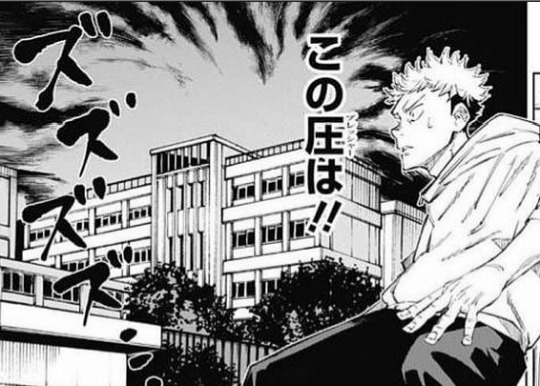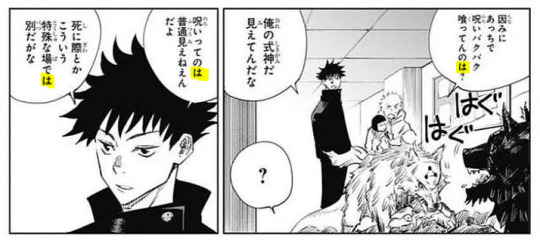#は
Text
ことわざ 16/?
ことわざ are Japanese proverbs, and I have listed some basic proverbs, their equivalents in English, and a rough translation of the meanings of the Japanese phrase.
There is a test for ことわざ called the ことわざ能力検定 (ことわざのうりょくけんてい) and these are the phrases that appear in level 9 or 9級 (10 being the lowest level). For the time being, try one or two of these out the next time you speak with a native Japanese speaker!
ことわざ (こと検9級): 11 | 12 | 13 | 14 | 15
More ことわざ (こと検10級): 1 | 2 | 3 | 4 | 5 | 6 | 7 | 8 | 9 | 10

歯が浮く
はがうく
cringe-inducing
causing an uncomfortable feeling akin to a loose tooth
歯が立たない
はがたたない
to stand no chance against (opponent/challenge)
teeth cannot stand against the hardness
鼻息が荒い
はないきがあらい
expressing passion and excitement
breathing heavily through the nose
鼻が利く
はながきく
to have a knack for finding money-making opportunities
nose is effective in sniffing out money-making opportunities
鼻が高い
はながたかい
to be filled with pride
hold your nose high
鼻であしらう
はなであしらう
to treat someone with contempt
signal contempt using your nose
鼻で笑う
はなでわらう
to scoff
laugh through your nose
鼻に掛ける
はなにかける
to brag, boast or show off
hang prominently on your nose
鼻に付く
はなにつく
to become tiresome
tiresome behavior that becomes like a bad stench that sticks in your nose
鼻持ちならない
はなもちならない
to become unbearable
bad attitude/behavior likened to a stench so bad you can't stand it even when holding your nose
鼻を明かす
はなをあかす
to outwit, get the jump on, catch off guard
reveal your nose and surprise your opponent
鼻を折る
はなをおる
to take someone down a peg
break someone's nose
鼻を突く
はなをつく
putrid, rank, foul
a smell that stabs the nose
鼻を鳴らす
はなをならす
to whine in an attempt to get your way
to sound your nose
歯に衣着せぬ
はにきぬきせぬ
blunt, straightforward, without 'sugar-coating' it
without applying coating to your teeth
歯の抜けたよう
はのぬけたよう
appearing empty or deserted
like a mouth with its teeth removed
歯の根が合わない
はのねがあわない
teeth chattering from cold/fear
unable to align the base of your teeth
腹が黒い
はらがくろい
deceptive, conniving, black-hearted (also, 腹黒い)
black stomach (disposition)
腹が据わる
はらがすわる
to feel confident
have your stomach (courage) steadied
腹が立つ
はらがたつ
to get angry
have your stomach (disposition) get riled up
腹が減っては戦はできぬ
はらがへってはいくさはできぬ
you can't work on an empty stomach
you can't do battle when hungry
腹に据え兼ねる
はらにすえかねる
to have all you can stand; to be fed up
unable to settle your stomach (disposition)
腹の皮が捩れる
はらのかわがよじれる
side-splitting
makes you laugh so hard the skin of your stomach twists
腹の虫が治まらない
はらのむしがおさまらない
to have all you can stand; to be fed up
unable to settle your stomach worm (from ancient belief that Three Demonic Worms live in the head, chest and stomach and monitor the host's behavior)
腸が煮え繰り返る
はらわたがにえくりかえる
to have your blood boil
have your organs boiling repeatedly
腹を探る
はらをさぐる
to try and infer what someone is thinking/feeling
search someone's stomach (disposition)
腹を割る
はらをわる
to open up (and converse frankly)
split your stomach (emotional center) open
歯を食いしばる
はをくいしばる
to grin and bear it
bite and lock your teeth
膝を交える
ひざをまじえる
to get together for a friendly chat
sit knees crossed and chat
人の口には戸は立てられぬ
ひとのくちにとはたてられぬ
people are gonna talk
you can't erect a door over a person's mouth
一肌脱ぐ
ひとはだぬぐ
to help in any way you can
remove your top and expose your upper body skin to signal intent to get serious and help
腑に落ちない
ふにおちない
unsatisfying (conclusion or explanation)
does not fall in line with your gut (better judgment)
臍で茶を沸かす
へそでちゃをわかす
you're killing me!; that's rich!
that makes me laugh so hard, I could boil tea on my bellybutton! usually said in a mocking manner)
臍を曲げる
へそをまげる
to get cranky
hunched over grumpy making your bellybutton bend
下手な鉄砲も数撃てば当たる
へたなてっぽうもかずうてばあたる
given enough tries, anyone can succeed
even a poorly handled cannon, fired enough times will hit the mark by sheer chance
下手の考え休むに似たり
へたのかんがえやすむににたり
an idiot in thought may as well be napping
a poor attempt at thinking is the same as just resting
下手の横好き
へたのよこずき
a glutton for punishment
unskilled at something, but you insist on liking it
臍を噬む
ほぞをかむ
to regret bitterly
using the futility of trying to chew your own bellybutton as a metaphor for the futility of agonizing over the past
骨折り損の草臥れ儲け
ほねおりぞんのくたびれもうけ
a whole lot of effort for a whole lot of nothing
work til you suffer broken bones and earn only exhaustion
骨が折れる
ほねがおれる
difficult or intensive (work)
work that will break your bones
骨身を削る
ほねみをけずる
to work yourself to the bone
shave down your body and bones with work
骨を埋める
ほねをうずめる
to live out your life somewhere; to dedicate your life to a pursuit
bury your bones somewhere
骨を折る
ほねをおる
to work hard without complaint
break your bones to accomplish something or support someone
#日本語#japanese#japanese language#japanese langblr#langblr#studyblr#ことわざ#japanese proverbs#こと検9級#は#は~ほ#tokidokitokyo#tdtstudy
114 notes
·
View notes
Text
When to use は and が
A different take on the matter.
Disclaimer* I’m learning Japanese. Don’t take this as the ultimate guide to the Japanese particles! Feel free to correct me!
[known information] は [unknown information]
To determine whether something is known or unknown, you need to closely analyze the context. Japanese is a highly contextual language, and I often catch myself analyzing something without considering the context first. I hope that grammar rules will somehow explain everything to me.
Consider this example:
私はポーランド人です.
私は = known information
ポーランド人 = unknown information
Context: I’m standing in front of you, and I’m introducing myself.
私は is considered "known information" because you can see me. You know exactly who is speaking.
However, you know nothing about me. I’m giving the unknown information: ポーランド人です。
あなたは誰ですか?
Context: You’re standing in front of me, so you’re known information to me. There is something about you that I don’t know, though. You will provide me with the unknown information.
このアニメはどう?
Context: We both watched the same anime. We both know what anime we’re referring to. But I don’t know what you think about it. You’re supplying me with the missing bit of information.
Examples from Jujutsu Kaisen manga

Context: Yuuji and Megumi just arrived in front of the school. Yuuji can feel the pressure given off by the curse.
"The pressure" is known information to both the reader and Yuuji. We can see the dark shadows around the school. “(Damn) … the pressure…”
So, I truly believe that in this case, は matches the use of the English definite article ‘the’ which is also used when both you and the reader / your listener know (see, hear, etc.) the noun in question.

Context: Yuuji is asking about Megumi’s divine dogs.
因みにあっちで呪いパクパク食ってんのは?
They both can see the divine dogs, so it’s known information to both.
Megumi is supplying Yuuji with the unknown information = they are my shikigami.
呪いってのは = Speaking of curses… (curses have already been mentioned. They are “known information”)
の in this case changes 呪いって to gerund.
The rest of the sentence is the unknown information = it’s not common to see them.
The third は also shows us known and unknown information.
死に際とかこういう特殊な場では別だがな
(it’s not common to see them) On deathbeds and special occasions like this, it’s a different case.
Both of them (including us) know what a ‘deathbed’ means and what the current situation is.
Megumi gives us the missing information = it’s a different case (別だがな).
However, in this case we could also apply the contrastive rule of は which always hinges on the context. Contrastive は always introduces some implicit (or it could be even explicit) information – you normally don’t see curses HOWEVER [contrast] when you’re about to die, it’s a different case.
More about とか and で
[known information] は [known information]
It’s a rare case where both pieces of information are known to us. When might something like that happen? Mostly when we state some obvious facts, for example, an idiot will always be an idiot.
バカはバカです
バカ we know what/who バカ is. We repeat the information to our listeners; no surprise here. Both バカ here are the same バカ; it doesn’t mean that a new バカ just showed up.
(Which could be highly possible, considering how many of them are out there ;))
Unfortunately, I don’t have too many examples for this one. Since it’s a rare case, there aren’t too many of those (I guess).
When to use particle が
[unknown information] が [known information]
For starters, a simple sentence:
私が田中先生です。
Context: We are in a conference room full of people, and the speaker is looking for a teacher named Tanaka. We KNOW that there is a teacher named Tanaka. The speaker just told us. That’s our known information.
The unknown information = who identifies as Tanaka sensei. We don’t know what this teacher looks like, so we can’t point to anyone specific. Suddenly, someone stands up and says: "I’m Tanaka sensei!"
In English, we would emphasize this structure with the tone of our voice. You would say “I’m” a little louder and stronger = It’s me! I AM Tanaka sensei.
To use this combination, we need a broader context. You wouldn’t use it to introduce yourself (which doesn’t require any context) because, as we already mentioned, everyone can see you but know nothing about you.
が represents the exact opposite situation. We know something about someone, but we don’t know who that person is.
Another example:
電話が便利です。でんわ が べんり です。
As you can see, the known information is that something is convenient, but we don’t know what.
To determine the context, we can ask a question.
What is useful/convenient?
A telephone is convenient. Now we know.
何が便利ですか?
Note that when we ask questions, we also use が because we have some identifying information. We don’t know, though, what possesses such qualities/features.
Questions words, by their nature, represent unknown things.
One thing that usually pops up in anime is when guys say: 俺がやる!
Oftentimes, all the characters know that something must be done about something. The question is: who’s going to do it?
が for marking wishes/desires

Japanese: A Comprehensive Grammar: Kaiser, Stefan (p. 40).
他の仕事がやりたい!
I want to do a different job.
が for showing what is more important

Japanese: A Comprehensive Grammar: Kaiser, Stefan (p. 42).
Sources:
Japanese: A Comprehensive Grammar: Kaiser, Stefan (p. 40 & 42).
My Japanese teacher and his Japanese teacher
2 notes
·
View notes
Photo

Particles が & は- a different perspective
Disclaimer*
I’m learning Japanese. Don’t take this as the ultimate guide to the Japanese particles!
Feel free to correct me!
Combination #1 & Combination #2
Combination #3
[Unknown information] が [known information]
This time, we're going to discuss particle が and what information it relates to us. For starters, a simple sentence:
私が田中先生です。
Context: We are in a conference room full of people, and the speaker is looking for a teacher named Tanaka. We KNOW that there is a teacher named Tanaka. The speaker just told us. That's our known information.
The unknown information - who identifies as Tanaka sensei. We don't know what this teacher looks like, so we can't point to anyone specific. Suddenly, someone stands up and says: 'I'm Tanaka sensei!'
In English, we would emphasize this structure with the tone of our voice. You would say "I'm" a little louder and stronger - It's me! I AM Tanaka sensei.
To use this combination, we need a broader context. You wouldn't use it to introduce yourself (which doesn't require any context) because, as we already mentioned, everyone can see you but know nothing about you (私は田中先生です. In this case, it's the exact opposite situation. We know something about someone, but we don't know who that person is.
電話が便利です。でんわ が べんり です。
To determine the context, we can ask a question. What is useful/convenient? As you can see, the known information is that something is convenient, but we don't know what. A telephone is convenient. Now we know.
何が便利ですか?
Note that when we ask questions, we also use が because we have some identifying information. We don't know, though, what possesses such qualities/features.
Questions words, by their nature, represent unknown things.
One thing that usually pops up in anime is when guys say: 俺がやる!Often times, all the characters know that something must be done about something. The questions is - who's going to do it?
Hope this helps! :)
17 notes
·
View notes
Text

dubious fucking thing
#the boy and the heron#君たちはどう生きるか#studio ghibli#this movie is so beautiful and hes like. hes like that
6K notes
·
View notes
Text

Rei Kurahashi "Princess"
くらはしれい「おひめさま」
10K notes
·
View notes
Text










Ghibli men and women in Bulgarian headdress 🇧🇬 This is the third, and last part—continuation to this post.
The last two illustrations are based on the Ghibli movie 'Only Yesterday'. In the scene when the protagonist, Taeko, picks safflower, the Bulgarian song 'Malka Moma Dvori Mete' plays in the background. In my interpretation, she's picking rose petals in the Bulgarian Rose Valley. 🌹
My Instagram
#illustration#artists on tumblr#my art#アート#studio ghibli#art#絵描き#bulgaria#howls moving castle#kikis delivery service#the borrower arrietty#spirited away#princess mononoke#the boy and the heron#魔女の宅急便#ハウルの動く城#もののけ姫#千と千尋の神隠し#君たちはどう生きるか#借りぐらしのアリエッティ#ブルガリア#スタジオジブリ#宮崎駿#hayao miyazaki#how do you live#illustrators on tumblr#illustrator#illustragram#isao takahata#toshio Suzuki
3K notes
·
View notes
Photo

【店舗工場化】 普通の店? いわゆる一般的な飲食店の全面改装をするのは お初になります。 がっ、 昔から 何件も何件も 手掛けてきた夜の店、 それとやってる事は、 なんら変わりない⁉︎ そんな事に はたと気づく。 ミラーボールや 電飾関係が無いだけで‥ 変わり映えする店を作ってる訳でもなく、 かわりに自分のセンスも 進歩してないんだと‥ 今まで、 飲み屋だったり、 風俗店だった事もあり 取り上げてもらえなかっただけ、 人気の建築家やインテリアコーディネーターに インダストリアルの面では何ら引けを取る事はない。 だって、10代の頃から 建築現場、建設現場に 就労し、夜には勝手に入って遊んでた‥ 雑誌や有名作家さんを 参考にしてはおりません。 自分の目でみて 触れてきた物を形にしております🙇😸🍥😸😸 #愛知県 #岡崎市 #クサカベ工芸 #zero stage #看板屋 #は #看板 #や #店舗デザイン #をする (Kakemachi, Okazaki-shi) https://www.instagram.com/p/Cpm-aVKPn56/?igshid=NGJjMDIxMWI=
0 notes
Text
ことわざ 6/?
ことわざ are Japanese proverbs, and I have listed some basic proverbs, their equivalents in English, and a rough translation of the meanings of the Japanese phrase.
There is a test for ことわざ (of course there is) called the ことわざ能力検定 (ことわざのうりょくけんてい) and while mostly younger kids take it, there are some foreigners among the ranks. For the time being, try one or two of these out the next time you speak with a native Japanese speaker!
More ことわざ: 1 | 2 | 3 | 4 | 5

始めが大事
はじめがだいじ
a good start makes for a good finish
the beginning is important
早起きは三文の得
はやおきはさんもんのとく
early to bed, and early to rise, makes a man healthy, wealthy and wise
get up early, get three coins
人のふり見て我ふり直せ
ひとのふりみてわがふりなおせ
A wise man learns from the mistakes of others
observe a person's behavior and fix yours
百聞は一見にしかず
ひゃくぶんはいっけんにしかず
seeing is believing
hearing 100 times cannot equal the impact of seeing once
風林火山
ふうりんかざん
swift as the wind, silent as the forest, relentless as fire, and unyielding as a mountain
swift as the wind, silent as the forest, relentless as fire, and unyielding as a mountain
豚に真珠
ぶたにしんじゅ
pearls before swine
pearls before swine
屁の河童
へのかっぱ
piece of cake
like a kappa farting underwater doesn't move the current, this problem will be no burden
ペンは剣よりも強し
ぺんはけんよりもつよし
the pen is mightier than the sword
the pen is mightier than the sword
仏の顔も三度まで
ほとけのかおもさんどまで
three strikes and you're out
you can strike the face of Buddha 3 times (before even he loses his temper)
惚れて通えば千里も一里
ほれてかよえばせんりもいちり
love knows no distance
when traveling while infatuated, 1,000 miles is like one mile
#日本語#japanese#japanese language#japanese langblr#langblr#studyblr#ことわざ#japanese proverbs#こと検10級#は#は~ほ#tokidokitokyo#tdtstudy
41 notes
·
View notes
Photo

Particles が & は- a different perspective
Disclaimer*
I’m learning Japanese. Don’t take this as the ultimate guide to the Japanese particles!
Feel free to correct me!
Combination #2
[known information] は [known information]
In the previous post, we discussed known information (the topic) and something that we didn’t know about that topic - known は unknown information. This time, we’re dealing with a rare case where both pieces of information are known to us. When might something like that happen? Mostly when we state some obvious facts, for example, an idiot will always be an idiot.
バカはバカです
バカ we know what/who バカ is. We repeat the information to our listeners; no surprise here as in: “Oh really? I didn’t know that!”
Both バカ here are the same バカ; it doesn’t mean that a new バカ just showed up (which could be highly possible, considering how many of them are out there ;)).
Unfortunately, I don’t have too many examples for this one. Since it’s a rare case, there aren’t too many of those (I guess). If you have any, feel free to reblog this one and add something from yourself :)
8 notes
·
View notes
Text










君たちはどう生きるか | THE BOY AND THE HERON / HOW DO YOU LIVE (2023), dir. Hayao Miyazaki
#o bücürük şeyler ne yine ölücem#studio ghibli#kimitachi wa dou ikiru ka#君たちはどう生きるか#the boy and the heron#how do you live#hayao miyazaki
4K notes
·
View notes
Text

5K notes
·
View notes











